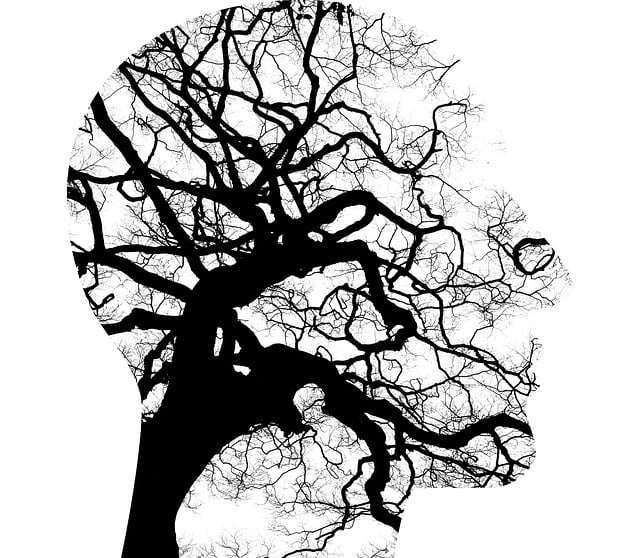Risk assessment is a vital aspect of mental health care, particularly at organizations like Wheat Ridge Women's Issues Therapy (WRWIT), aiming to ensure client safety and well-being. WRWIT integrates compassion cultivation and conflict resolution techniques into their programs, addressing systemic risks such as staff burnout and cultural biases. They specialize in managing intense emotions and challenging behaviors through training in Social Skills Training, Stress Management, and Emotional Well-being Promotion Techniques, fostering secure therapeutic relationships and effective risk mitigation. Strategic approaches like comprehensive emotional regulation training for professionals and clients enhance early risk identification, leading to improved client resilience and positive outcomes while mitigating hazards.
In the intricate field of mental health, risk assessment is a cornerstone of patient safety. This article delves into the essential practice of risk evaluation within healthcare settings, particularly focusing on the unique challenges faced by Wheat Ridge Womens Issues Therapy. We explore strategies for comprehensive risk assessment, highlighting best practices tailored to this specialized therapy context. By understanding and mitigating risks, mental health professionals can ensure a secure environment, fostering effective treatment outcomes.
- Understanding Risk Assessment in Mental Health Practices
- Unique Considerations for Wheat Ridge Womens Issues Therapy
- Strategies for Effective Risk Management and Prevention
Understanding Risk Assessment in Mental Health Practices

Risk assessment is a fundamental practice in mental health care, serving as a proactive measure to ensure client safety and well-being. It involves a systematic process of identifying, evaluating, and mitigating potential risks associated with therapy sessions. For organizations like Wheat Ridge Women’s Issues Therapy, this means creating a safe and supportive environment while managing the unique challenges that come with addressing sensitive issues. By incorporating compassion cultivation practices and conflict resolution techniques into their mental health education programs design, they can effectively navigate complex situations and promote positive outcomes for clients.
This proactive approach extends beyond individual therapy sessions to encompass the broader practice. Regular risk assessments help identify systemic risks, such as staff burnout or cultural biases, which can impact client care. By continually evaluating these factors, mental health professionals can adapt their strategies, ensuring they remain equipped to handle a wide range of potential risks and providing the best possible support for their clients.
Unique Considerations for Wheat Ridge Womens Issues Therapy

When conducting a risk assessment for mental health professionals specializing in Wheat Ridge Womens Issues Therapy (WRWIT), several unique considerations come into play. WRWIT often involves highly sensitive and complex cases, requiring therapists to navigate intricate emotional landscapes. The safety and well-being of both clients and practitioners must be paramount, especially given the potential for intense emotions and challenging behaviors that may arise during therapy sessions.
Specialized training in areas such as Social Skills Training, Stress Management, and Emotional Well-being Promotion Techniques becomes essential. These skills not only help in fostering secure therapeutic relationships but also equip mental health professionals with tools to mitigate risks effectively. By integrating these strategies into their practice, therapists can create a safer environment, enhancing client outcomes while prioritizing their own emotional resilience.
Strategies for Effective Risk Management and Prevention

Mental health professionals, especially those offering services like Wheat Ridge Women’s Issues Therapy, play a vital role in helping individuals navigate emotional challenges and crises. However, they also face unique risks associated with their sensitive work. To mitigate these risks effectively, several strategic approaches can be implemented for robust risk management and prevention.
One key strategy is integrating comprehensive training programs that emphasize emotional regulation techniques for both professionals and clients. This includes equipping therapists with the latest crisis intervention guidance to handle urgent situations adeptly. Additionally, fostering an environment of open communication encourages clients to share their struggles transparently, enabling early identification of potential risks. By incorporating anxiety relief strategies into therapy sessions, mental health practitioners can create a supportive atmosphere that enhances client resilience and promotes positive outcomes while minimizing potential hazards.
Mental health professionals, such as those at Wheat Ridge Womens Issues Therapy, operate in a complex environment requiring meticulous risk assessment. By understanding potential risks, implementing unique considerations tailored to their practice, and adopting effective strategies for management and prevention, therapists can create a safe and supportive space for their clients while mitigating professional exposure. This holistic approach ensures the well-being of both patients and practitioners, fostering an environment conducive to healing and growth.










